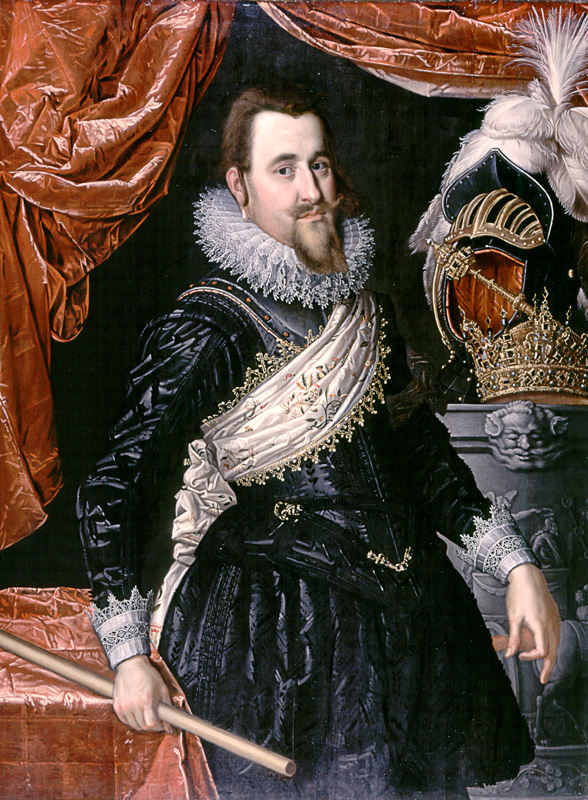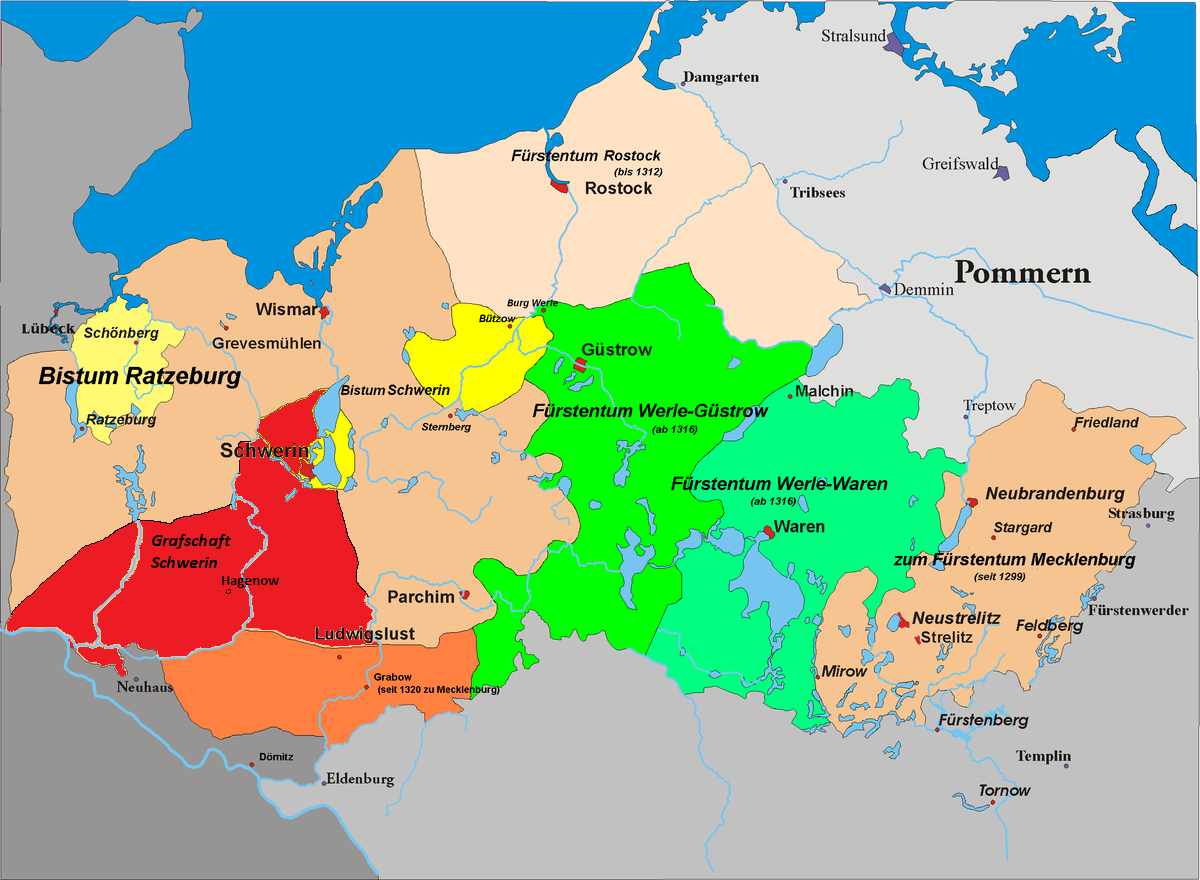The Lords of War
Denmark and Sweden had been in deep disagreement for years, the Swedes was angry over the Danish Sound Dues, and the Danish was angry over the establishment of Elfborg (Gothenburg) as a way around the dues and to even large extent angry over Swedish blockage of Narva and to lesser extent Riga. Both powers also disagreed over the ownership of the Finnmark. As such the crowning of Charles IX who aggressive pushed his claim to Finnmark was a sure way to war.
1611 Christian was making the army ready to war, it was decided to split the army in two parts, one which is lead by Christian in the east and one by Johan in the west, the importance of this was that Christian hoped to cut of the Swedish support lines of by conquering Kalmar. Christian planned to raise 9000 man, while hiring another 16000 mercenaries. But he was unable to raise more than 6000 and no more than 9000 mercenaries and so the army was cut down to a east army, until Johan could raise more soldiers and hire mercenaries. But even that ended up a failure, the mercenaries failed to get to Christianoble (where the king was based) in time, and Christian had to march on Kalmar with 6000 man.
The attack on Kalmar surprised Karl, who had thought Christian would meet his superior army in the west and he began a brutal invasion of Scania to cut of Christian, while marching east to Kalmar. Christian's siege of Kalmar also ended up a morass. He had expected the local population to rise up in rebellion against the Swedish king, but nothing like that happened, Christian seem more or more likely to be caught between Kalmar and the Swedish army. Finally the storm of the town succeed, but he was still unable to take the local fortress.
At the same time Swedish peasant troops invaded and occupied Jämtland, mostly because the local peasants didn't put up much of a fight.
But in the west Johan had forced the Rigsråd to raise 3000 troops extra and the 9000 mercenaries had arrived and Johan had successfully cajoled the ritterschafts in Holstein, Schleswig and Mecklenburg to hire mercenaries to the conflict, which was on the way. 3000 Mercenaries was send to join his brother who continued his siege of Kalmar Castle. They arrived in time to join against the Karl's army. The battle became a Danish victory securing the Danish position in Kalmar.
Johan on the other hand lead 9000 troops on Elfborg, the attack was unexpected and Elfborg fell fast.
As the winter began the Elfborg and Kalmar was under Danish occupation and Jämtland under Swedish.
With Elfborg conquered the Danes could blockade the Swedish trade. A deal was made with Lübeck and Netherlands that if they kept back from trade with the Swedes, the Sound Dues wouldn't be raised on their ship.
1612 In late januar Kalmar Castle fell, not to the Danish besiege but to treason, a Swedish office let the Danes in (as reward he received a fief from the Danish king). Öland surrendered under a month after and as such the Danes was in a good position as the winter ended.
In Jämtland widespread atrocities from the Swedish troops made the local rise up in rebellion and they drove the Swedes out.
Johan had received 3000 extra troops while 6000 joined Christian. As such Johan began a march east toward Jönköbing which fell in the early summer. While Christian marched north, Karl had little choice after the defeat at Kalmar to retreat, and by his death in oktober most of southern Sweden was occupied by the Danes.
The Swedes sued for peace, but Christian planned to continue north to conquer Stockholm and crown himself king.
One of the more interesting battle of this year was the Scottish Battle in Romsdalen, a Scottish mercenary force in Swedish service landed there and marched through Norway to enter Sweden, but two bailiffs discovered them and organised the local peasants into a ambush where most of the 300 Scots was killed.
1613 Christian and Johan joined in a march toward Stockholm, but the march over land showed itself to be a disaster, many troops dies, food was hard to find and the Danes final met the new Swedish king Gustav II Adolp in battle at Närke, while a close Danish victory, it was a Pyrrhic victory, Christian was wounded in the battle and Johan ordered a retreat to Jönköbing.
The Danes and Swedes began to negotiate a peace treaty.
The final result was that Sweden recognise Danish rule over Finnmark, and paid a ransom of 1 000 000 rigsdaler for Kalmar, which stay occupied by Denmark until the ransom was payed. Denmark receive Västergötland, Dalsland, Wärmland and Jönköbing. While Sweden became free of the Sound Dues.
While not the result Christian wanted, it's was still a good result. He had showed Denmark's superiority over Sweden, he had received a large ransom and gotten the vast domain from Sweden. In fact he established the conquered lands as the new Duchy of Vestgøtland with adminstrative centre in Elfborg.
Johan had showed himself as a loyal vassal and a great general, so Christian decided to reward him by trying to get his land in Russia back. But for that he needed to have a way to pressure the Russians. The Russians fought both a war with the Swedes and Poles in the west and there was no way to do anything there. But in the north in Bjarmaland, he could cut of Russian access to the vest and that way pressure the Russian to concessions.
But Johan was needed in Denmark, the war had shown major weaknesses in the Danish army, the Danish victory at Kalmar was pure luck and the failure to raise the needed forces could have cost Denmark the war.
1614 A expedition was made ready, it was decided it should be lead by Jens Munk and Jørgen Daa, who had showed themselves to be talented in the Kalmar War. All in all a force of 750 mercenaries plus 300 marines was send north with a small fleet. Jens Munk landed with a small force of 150 man at Murmansk, which was conquered fast, while Jørgen Daa continued to Arkhangelsk which he besieged took rather fast. From there small forces was send out and occupied other settlements along the coast. The Tsar was furious, suddenly he was cut of from his main source of foreign capital, at a time he needed it the most. He couldn't afford the men to reconquer the lost territories, so he was forced to negotiate with the Danes. The Danes offered to give it back if johan's son was crowned Tsar or his his domain was given back. Neither was demand he could accept.
1615 Finally a solution was found, the Russians paid a sum of 250 000 rigsdaler and gave up Bjarmaland against the Russian having free access to Arkhangelsk. Johan got the 250 000 rigsdaler plus the same amount from Christian, while Christian got Bjarmaland. Bjarmaland was set up as a independent Grand Duchy with capital in Arkhangelsk (which was renamed Christianshavn) in personal union with Denmark.
Johan mostly invested the money in buying up land and manors in Denmark, which he ran with the same brutal efficiency as his mother, beside that he had received large grands of land in Vestgötland. As such he was by 1615 the third richest man in Denmark with only his mother and brother ahead of him. As such the future looked wonderful for Johan.

